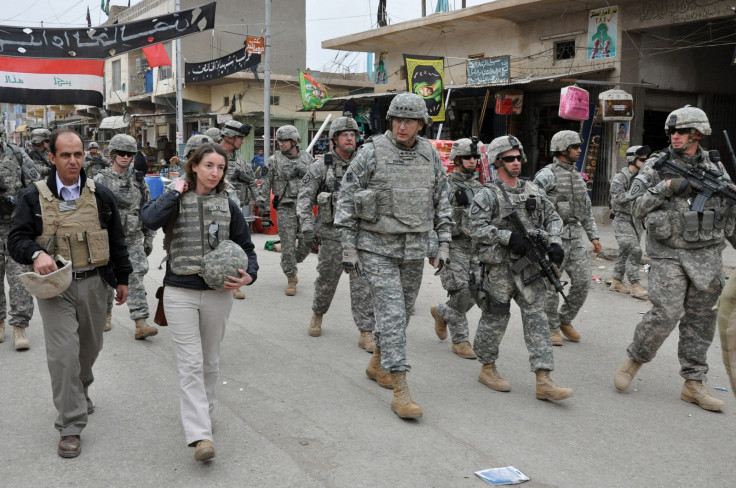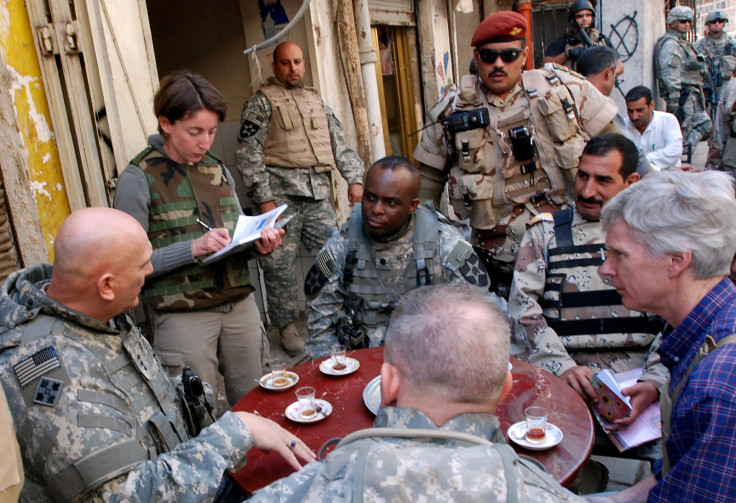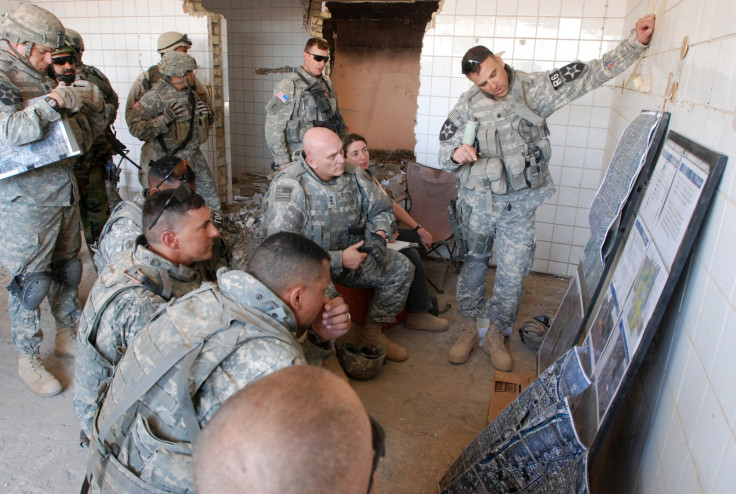Iran unleashed: Can America stop Tehran destabilising the Middle East?

The front-page blurb for Emma Sky's book on her seven years as a high-level administrator and political adviser in US-occupied Iraq, The Unravelling, speaks of both hope and opportunity – the former high, the latter missed.
Sky moved to Iraq immediately after the fall of Baghdad to US and British troops in 2003 to work for the Coalition Provisional Authority (CPA), and ended up staying seven years. She was first made governor of the restive and ethnically diverse northern city of Kirkuk before being appointed as chief adviser to the top US general in Iraq, Ray Odierno, in Baghdad.
Islamic State is a symptom of the system of government and the elites. In America, the rejection is that you end up with Donald Trump – in Syria, the rejection you end up with is Islamic State.
During that time, Sky tussled with American politicians, generals and a variety of Iraqi strongmen, tribal leaders and politicians. Her role in the post-war rebuilding of Iraq often drew comparisons with the celebrated British explorer Gertrude Bell, who played a central role in the formation of the Iraqi state almost a century earlier.
But at its heart, The Unravelling is a story of the mistakes made between 2003 and 2010 that helped pave the way for the chaos that is Iraq in 2015. Divided along sectarian lines, devastated by war and with a third of its territory under the control of the murderous Islamic State (Isis), Iraq today has once again become a byword for fundamentalist hatred, death and destruction.
"There is nothing remaining of what was achieved during that period. The whole thing is lost," Sky says over the phone from her home in New Haven, Connecticut, where she is senior fellow at the Jackson Institute for Global Affairs at Yale University. "[But] I think what is important to note is that it was real. The violence did come down and things were achieved."

Iraq was hardly stable when Sky lived and worked in the country. During 2006 and 2007 the country saw some of the worst sectarian violence it had ever seen, a period during which Sky writes "so many bodies were found floating in the Tigris that some Iraqis stopped eating fish, claiming its flavour had changed from nibbling on human flesh".
It was that violence that led to what is known as "the surge", when US President George W Bush deployed some 20,000 troops – mostly to Baghdad – in response to the rising threat of Al Qaeda in Iraq, the terrorist group that would eventually give birth to IS. The coalition also reached out to powerful Sunni tribes in Al Qaeda's heartland in western Iraq and the militants' influence began to wane as a result.
But the brief lull in violence and political tension was sadly short-lived.
There are a number of villains of Sky's book, but chief among them is divisive former Iraqi Prime Minister Nour al-Maliki, the Shia leader and staunch ally of Bush, who once said the pair spoke on a weekly basis. Despite Maliki's party coming second in the 2010 elections, the US and Iran both urged Baghdad to allow him to form a government.
Once re-elected, Maliki became even more divisive and sectarian, using his power to crack down on Sunnis both in Baghdad and the west of the country, alienating the powerful tribes that had supported the surge. Maliki's allegiance to and dependence on Iran further alienated Iraq's Sunni minority and created the vacuum that allowed IS to consolidate its power.
"We should've upheld the election results [in 2010] so that people had faith in the process. The decision to support Maliki was disastrous because it undermined people's belief in the political process. It could have been different. The mistakes of 2010 ended up ruining the political process, making Iran much more influential and providing the opening for IS," Sky said.

The other prominent villain of Sky's book is Iran, and specifically General Qassem Suleimani, the commander of the country's Quds Force, the overseas arm of Iran's Revolutionary Guard. Iran was long accused of fuelling the insurgency against the US and British forces in Iraq that raged during the 2000s and funding powerful Shia militias that were responsible for brutal attacks on Iraqis and US soldiers.
But 2015 sees those same militias fighting IS in Iraq and backed by US airstrikes as Suleimani himself stalks the frontline of the battles against the militants. Meanwhile, the US has signed a historic anti-nuclear deal with the intention of bringing its erstwhile enemy in from the cold. Sky said she is not against the deal, but she hopes that Iran is not left entirely to its own devices.
"The instinct to try and prevent Iran from having nuclear capacity is obviously a good thing. I hope that America use this to engage further in the Middle East, so it is not just about the deal and then [a] pivot away from the region," she said.
"I hope American will look at pushing back on Iranian influence. The fear being that with the lifting of sanctions, Iran has now got more resources to exert its power in the region. That is very destabilising. I hope that the US is prepared to engage further to push back on Iranian influence, particularly in terms of support for the different militias and all those destabilising factors, which undermine the state."
Sky is reluctant to predict how and when the crisis in Iraq will end, although she does not think that IS is here to stay. That said, IS is symptomatic of a lack of faith in politics among Iraqis, particularly Sunnis, who see the rising Iranian influence in the country. It is equally the product of rampant corruption by powerful elites and vast patronage networks that thrived under Maliki.

Iraq's new prime minister, Haidar al-Abadi, has pledged to tackle corruption as well as the political marginalisation of Iraq's Sunnis, but it is early days. Abadi has been in power for just under a year.
"IS is a symptom of a bigger problem. The bigger problem is the regimes of these countries. IS will appear. You have to deal with the root causes, which is the system of government and the elites. In America, the rejection is that you end up with Donald Trump – in Syria, the rejection you end up with is IS. But they are symptoms of the problem of regimes," she said.
I started to go back to Iraq every few months and then I realised after a couple of years that that wasn't normal.
"Abadi has a vision for Iraq [but] can he actually implement [it]? The elites are going to do everything they can to resist. They will nod their heads but are they going to give up on all the money and the resources that they have gained and continue to take from the state?
"Expectations are high and if [Abadi] can't meet them then others are going to really look to benefit. And Maliki is waiting in the wings, hoping that they change the presidential system so that he can come back to power. All of these people are waiting for Abadi to fail so that they can benefit."
Having lived amid the complex politics of Iraq for seven years, Sky is clearly very much engaged in what takes place in the country today, but thousands of miles away in New Haven she said she is positive about a future that does not involve living there. But it was not an easy transition.
"I started to go back to Iraq every few months and then I realised after a couple of years that that wasn't normal. I was going to Sudan, Syria, and I thought I need to branch out – so I went to Burma, Kyrgyzstan and Uzbekistan. So it is still not a beach in the south of France but it is getting me a little bit further from the Middle East," she said.
"I loved my time in Iraq. I love Iraqis and I enjoyed being there. But there comes a time when you realise that there is nothing that I as an individual can do on the ground. So being at Yale is great. It is great to have students to talk to so that they understand what went wrong. If they are ever in positions of power [I hope] they will have learned something."
© Copyright IBTimes 2025. All rights reserved.






















